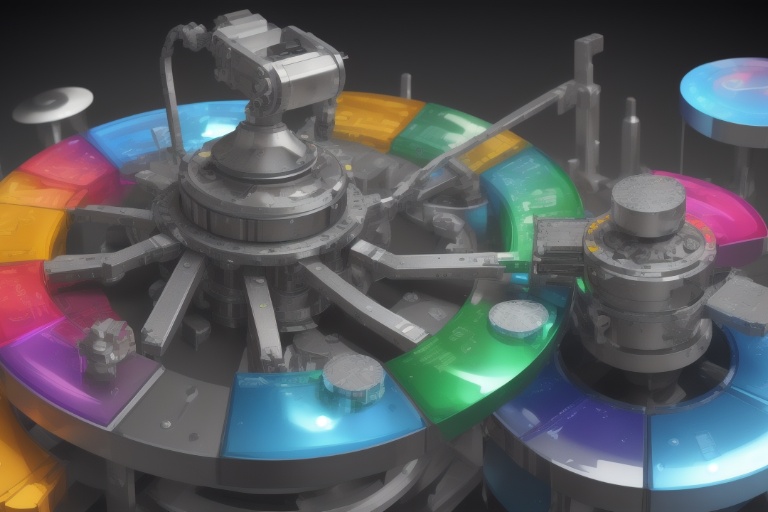Artificial Intelligence (AI) represents a groundbreaking shift in technological innovation, touching virtually every aspect of our daily lives and business operations. This rapid advancement, however, has brought with it a host of ethical concerns and practical risks that we must grapple with as a society.
Artificial Intelligence (AI) represents a groundbreaking shift in technological innovation, touching virtually every aspect of our daily lives and business operations. This rapid advancement, however, has brought with it a host of ethical concerns and practical risks that we must grapple with as a society.
Understanding AI Risks: From Job Automation to Uncontrollable Systems
One of the most palpable concerns with the rise of AI is job automation. As machines become more capable of performing tasks that were traditionally carried out by humans, the potential displacement of workers becomes more of an issue. Industries such as manufacturing, transportation, and even service sectors could see significant changes in employment patterns, necessitating a robust response including workforce retraining and shifts in education systems to prepare for new kinds of jobs.
Furthermore, the manner in which AI systems reach conclusions – often perceived as a "black box" of decision-making – calls for improved transparency and explainability. Businesses and end-users alike need to understand how AI algorithms arrive at their decisions, especially when those decisions have significant consequences, such as in healthcare diagnoses or criminal justice.
Tackling Social Manipulation and Privacy Concerns
AI's ability to analyze and influence social behaviors presents another challenge. The same technology that can target advertisements and content to users' preferences can also be harnessed for social manipulation, spreading misinformation, or reinforcing echo chambers that divide rather than unite.
Privacy violations are yet another risk. AI systems that gather and process vast amounts of personal data can lead to breaches of privacy if not properly safeguarded. This becomes a pressing issue as AI becomes more integrated into smart technologies and the Internet of Things (IoT), where the boundaries of user consent and data protection are often blurred.
Confronting Algorithmic Bias and Weapons Automation
Algorithmic bias remains a significant risk, as AI systems can perpetuate or even exacerbate societal biases if they're not carefully designed and monitored. Biases can creep into AI through the data it's trained on, the design of the algorithms themselves, or the ways in which they're applied, leading to discriminatory practices and inequality.
Another area of concern is the rise of weapons automation, often referred to as "killer robots." The potential for AI to be used in autonomous weapons systems that make life-and-death decisions without human intervention is a sobering thought, prompting calls for international regulations and ethical frameworks to govern the use of AI in military applications.
Contemplating the Future: The Specter of Self-Aware AI
The long-term prospect of AI developing a form of self-awareness or consciousness stirs up existential questions and fears. While this scenario might currently be the stuff of science fiction, it underscores the need for vigilance and ethical guardrails to prevent the potential for AI to act in ways that could be harmful to humanity.
Striving for Ethical AI Integration
The integration of AI into business practices must be guided by a set of ethical principles. Businesses should prioritize monitoring their AI systems to ensure they are fair and equitable, sourcing high-quality data to reduce the likelihood of biases, and emphasizing the importance of explainability in their AI-driven decisions.
To ensure responsible development, a diverse array of perspectives must be considered. Involving experts from different fields, from ethicists to data scientists, and reflecting a broad range of societal views can contribute to more thoughtful and inclusive AI design.
Responsible AI Development: A Journey, Not a Destination
The journey towards responsible AI development is continuous. Striking a perfect harmony between innovation and human-centered considerations is complex, as new challenges emerge with AI's evolution. As we look ahead, the focus must remain on creating AI systems that work for the benefit of society and foster advancements that are both transformative and ethical.
The risks associated with AI are multifaceted, and addressing them will require a concerted effort by all stakeholders involved. Education, regulation, and a focus on ethics are key to realizing the full potential of AI technologies without losing sight of the values that define our humanity. By adhering to these principles and fostering an open dialogue on AI's impact, we can build a future where AI serves as a powerful tool for progress, balanced with the needs and concerns of society at large.
Information for this article was gathered from the following source.




